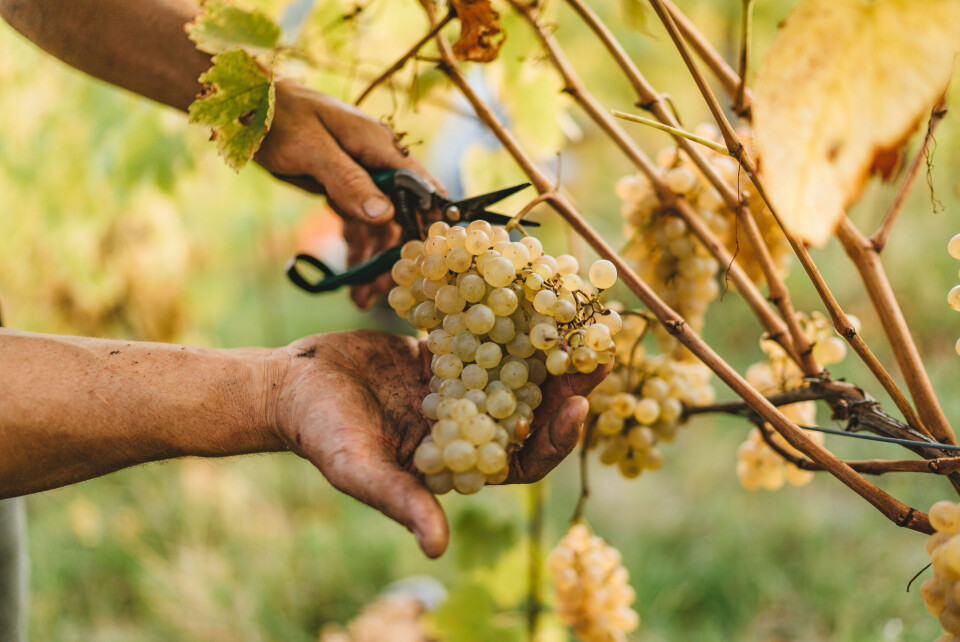-
New luxury Paris-Amalfi sleeper train service
Three-day Orient-Express trip includes hotel stays and Pompeii visit among other excursions
-
Why you can contest a speeding fine when driving to Italy from France
A new initiative has discovered that the majority of Italian speeding fines may be legally void
-
France’s Favourite Village 2026 shortlist announced
You can vote for your favourite until early March
Worst wine harvest for 45 years predicted due to bad weather
The grape yield will be down by 24%-30%, according to the Ministry of Agriculture, but this will not necessarily lead to a rise in wine prices

The French agriculture ministry has predicted that this year will see the worst wine harvest for 45 years, after nearly all the country’s grape-growing regions were hit by either frost, disease caused by too much rain, or drought.
Ministry experts predicted at the start of August that the 2021 harvest would be 24%-30% less plentiful than in 2020.
However, it is not certain that this poor harvest will result in higher wine prices in 2022 and beyond.
“It is far too early to tell,” said Juliette Théry, the director of operations at online wine investment site, Cavissima.
“The predictions are just predictions. We are still several weeks from the harvests starting in most areas and some good weather might change things around.”
She said, as a general rule, it was the quality of the wine produced in a year that probably had more of an impact on the price than the quantity produced.
This applies both to supermarket wines and expensive wines bought as an investment.
“Until the grapes are pressed and the experts can taste and test the juice, it is very difficult to say what the quality will be,” she said.
Cheaper wines typically arrive on shop shelves at least nine months after the initial grape harvest, while more expensive varieties take up to 10 years.
This means that other factors – such as quality – often have more of an impact on the price of a bottle than the quantity.
Philippe Larché, the CEO of Vintex wine traders, told The Connexion: “It would be pretentious to claim that we already know how the difficult conditions will affect pricing.
“For some small producers it will just be about surviving! But generally we might expect some price rises next year, not just in France but anywhere in the world, as most regions suffered from severe climatic conditions between frost, hail, fires and rains.”
He added though that the quality of the harvest might have more of an effect on prices than quantity: “In some years of low quantity, the quality has been excellent.”
Christophe Chateau of the Bordeaux Wine Council said one factor which might keep any price rises lower than they might have otherwise been was that 2018, 2019 and 2020 were all very good years for Bordeaux wines – both in terms of quality and quantity.
“This means that many wine makers probably have some reserves which they can release to the market,” he said.
“I expect it is the case both for those who sell mainly in supermarkets and those who go through specialist market places.”
A hard year for French wine producers
Nearly all wine making regions of France have been hit by various difficulties this year.
A wet winter and early warm spring was followed by late frosts across most of the country, with only Cognac and Alsace escaping heavy damage.
Even these areas were then affected by heavier than usual infestations of disease, with mildew and odium both flourishing in the very wet July, which also affected the Loire valley and parts of Burgundy.
Some producers in Champagne were hit with a double whammy of both frost and heavy mildew.
Down in the south, drought and later wild-fires had a negative effect on wine production.
Prices are usually set by producers, who use different strategies to dictate the amount of wine they keep in reserve and the amount they need to sell.
Related stories
What makes the perfect French wine fair?
French champagne makers call for Russia boycott over new wine law
Sancerre: Locals raise a glass to France’s newest ‘Favourite Village’
























